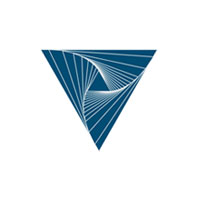[Lecture] Compute Continuum
Course Language: German
Modern computing has moved away from the desktop computer to the cloud, where resources and data are shared alike. Yet the Cloud computing paradigm suffers from the scope and complexity of modern compute scenarios, where data may reside anywhere, be produced and consumed anytime in any amount, and where users are mobile and distributed all over the world. To reduce the load on servers and the network, Fog and Edge computing were introduced - forms of distributed computing with flexible and variable allocation and load. This course will introduce the concept of the compute continuum, which aims at executing distributed applications flexibly over any infrastructure. The goal is to adapt immediately to different usage contexts. The compute continuum aims at scenarios arising from connected smart homes, smart cities, global logistic networks etc.
Within this lecture, we will investigate the relevant technologies to realise such an environment, and when it can be used, as well as its obstacles. The lecture is essentially segmented into three parts: The first part focuses on the hardware layer, including equally the type of processors, embedded system architectures and their connectivity. In the second part we will talk about the main principles of distributed computing, including how data is distributed and processed, and which use case criteria are fulfilled how. The third part is focusing on adaptive execution in the compute continuum, that includes embedded Operating Systems, virtualisation and containerisation.
[Lecture] High-Performance Computing for Advanced Students
Course Language: German
High-Performance Computing (HPC) is about the efficient and fast execution of large simulations on modern supercomputers. In the lecture High Performance Computing for Advanced Students, advanced theoretical and practical aspects of HPC and parallel scientific computing are considered. Building upon the knowledge gained in the previous lecture Introduction to High Performance Computing, the focus will be put on shared-memory parallel programming using OpenMP and hybrid programming models that are tailored ideally to modern supercomputers. By considering complex model problems from the field of numerical solution of partial differential equations, concrete applications (also in the form of larger programming projects) will be implemented. Another focus of the lecture will be the increasingly important area of machine learning. The algebra required and the methods used for machine learning are ideal for the use on GPUs (graphics processors) or accelerators.
